Akash Bharadwaj
When does the student surpass the teacher? Federated Semi-supervised Learning with Teacher-Student EMA
Jan 24, 2023Abstract:Semi-Supervised Learning (SSL) has received extensive attention in the domain of computer vision, leading to development of promising approaches such as FixMatch. In scenarios where training data is decentralized and resides on client devices, SSL must be integrated with privacy-aware training techniques such as Federated Learning. We consider the problem of federated image classification and study the performance and privacy challenges with existing federated SSL (FSSL) approaches. Firstly, we note that even state-of-the-art FSSL algorithms can trivially compromise client privacy and other real-world constraints such as client statelessness and communication cost. Secondly, we observe that it is challenging to integrate EMA (Exponential Moving Average) updates into the federated setting, which comes at a trade-off between performance and communication cost. We propose a novel approach FedSwitch, that improves privacy as well as generalization performance through Exponential Moving Average (EMA) updates. FedSwitch utilizes a federated semi-supervised teacher-student EMA framework with two features - local teacher adaptation and adaptive switching between teacher and student for pseudo-label generation. Our proposed approach outperforms the state-of-the-art on federated image classification, can be adapted to real-world constraints, and achieves good generalization performance with minimal communication cost overhead.
Opacus: User-Friendly Differential Privacy Library in PyTorch
Oct 05, 2021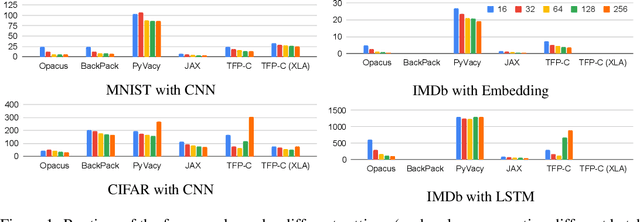
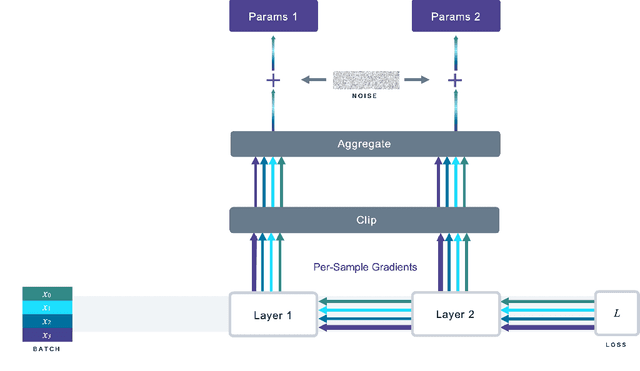
Abstract:We introduce Opacus, a free, open-source PyTorch library for training deep learning models with differential privacy (hosted at opacus.ai). Opacus is designed for simplicity, flexibility, and speed. It provides a simple and user-friendly API, and enables machine learning practitioners to make a training pipeline private by adding as little as two lines to their code. It supports a wide variety of layers, including multi-head attention, convolution, LSTM, and embedding, right out of the box, and it also provides the means for supporting other user-defined layers. Opacus computes batched per-sample gradients, providing better efficiency compared to the traditional "micro batch" approach. In this paper we present Opacus, detail the principles that drove its implementation and unique features, and compare its performance against other frameworks for differential privacy in ML.
To Test Machine Comprehension, Start by Defining Comprehension
May 11, 2020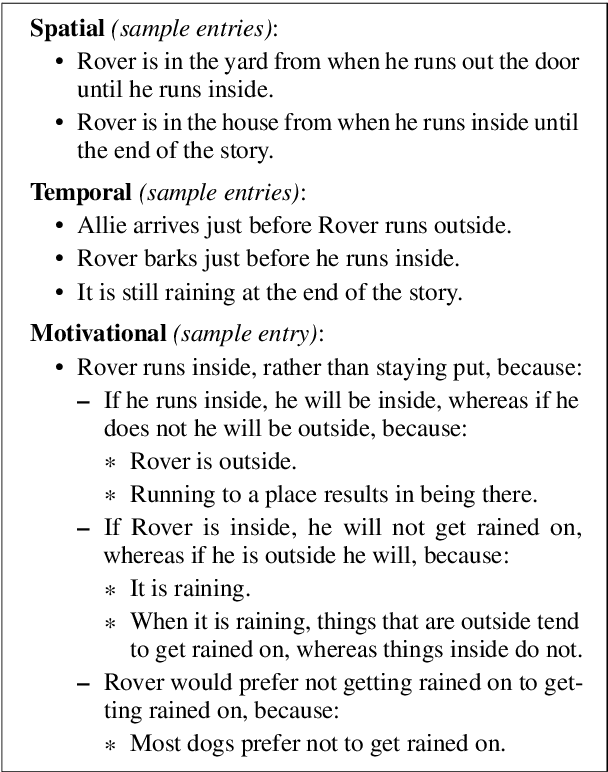
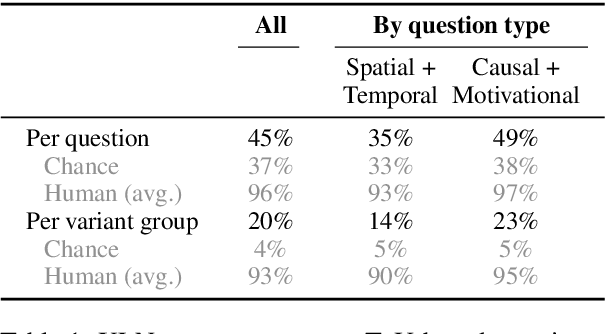

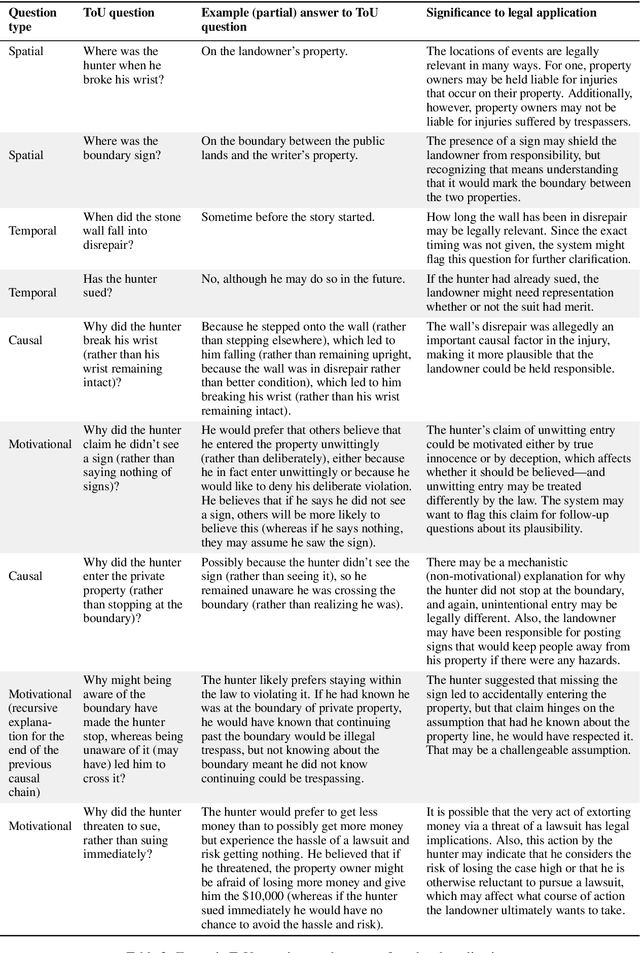
Abstract:Many tasks aim to measure machine reading comprehension (MRC), often focusing on question types presumed to be difficult. Rarely, however, do task designers start by considering what systems should in fact comprehend. In this paper we make two key contributions. First, we argue that existing approaches do not adequately define comprehension; they are too unsystematic about what content is tested. Second, we present a detailed definition of comprehension -- a "Template of Understanding" -- for a widely useful class of texts, namely short narratives. We then conduct an experiment that strongly suggests existing systems are not up to the task of narrative understanding as we define it.
 Add to Chrome
Add to Chrome Add to Firefox
Add to Firefox Add to Edge
Add to Edge